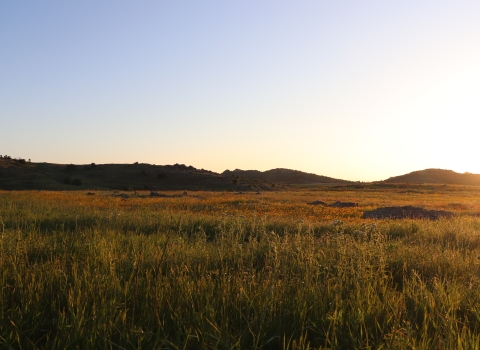Background
Each waterfowl season, especially in the earlier warmer months, there have been cases of hunting dogs contracting potentially serious bacterial infections after a day of hunting at Stillwater National Wildlife Refuge or Carson Lake & Pasture in Churchill County, outside of Fallon NV.
ISSUE:
Infections are caused by naturally occurring bacteria in the water and soils of the Lahontan Valley wetland and marsh habitat. Bacterium identified as causing this infection are Aeromonas sp. and Klebsiella sp., which are found in freshwater, estuarine, and salt water environments. Infections from this types of bacteria have been recorded in most warm and cold-blooded animals.
METHOD OF TRANSMITTAL:
Bacteria primarily enter the dog’s body through small cuts and punctures most often found on the paw pads, making them extremely difficult to observe. Often the dog has no cuts on the pads until after they enter the marsh, as the sharp ends of common marsh plants such as tules, cattails and bulrush can puncture the paw pads and act like a needle by injecting the bacteria into the cuts. These are opportunistic bacteria, and could potentially cause infection to any animal, including humans, with open cuts, wounds or other injury.
SYMPTOMS:
Once infected, symptoms can appear within a few hours, and include: very tender, painful and extremely swollen pads, paws and/or legs; blistering may appear at the point of entry on or between paw pads. The dog may exhibit unwillingness to walk, chills, fever and lethargy.
TREATMENT:
In the field, clean and disinfect any cuts or wounds observed as soon as noticed. Consult a veterinarian for lancing and treatment of the wound site, and a follow-up course of antibiotics. The infections can be successfully treated with antibiotics, but it is important to seek medical care as quickly as possible
PROGNOSIS:
Most dogs make a full recovery from these bacterial infections if treated early in its progress.
HUMAN THREATS:
As stated before, any animal with open wounds, cuts or punctures could potentially become infected with the bacteria. However, most people in the marsh are wearing protective footwear such as boots, waders, or are in boats. As with all hunting practices, it is advised to wear gloves when handling, cleaning or cooking wild game. Do not shoot, handle or consume game animals that act abnormal or appear to be sick. Properly clean, store and prepare any wild game. Wash hands, knives after use on wild game and seek medical attention if symptoms appear such as pain, redness, and/or swelling.




